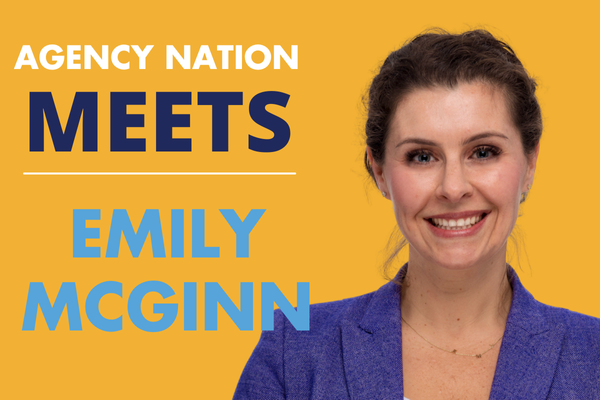Blurred Lines: Sales, Service or Both?

By: Peter van Aartrijk
Andy Thompson, owner of Thompson Group based in Parker City, Indiana, doesn’t want to mix sales and service roles among his staff.
“Salespeople are hunters,” Thompson says. “Service people are gatherers. Can you make a hunter a gatherer and a gatherer a hunter? You can, but why? Why not simply determine the right place for the people and then hold them accountable?”
Kevin Stipe, president of Reagan Consulting, which works with the Big “I” on the Best Practices program, agrees. “The industry has come to an understanding that you either have a certain kind of wiring or you don’t,” he says. “That kind of boldness and confidence and resilience required to be effective in sales is an unusual personality characteristic that only a relatively small number of the population has.”
Stipe voices the opinion of some in the independent insurance industry who believe a gap still exists between sales and service. “I don’t think giving the CSRs a sales role really bridges that divide,” he says. “You don’t need administrative people selling. I don’t think throwing a sales goal on a CSR is the way of the future.”
But many agencies are, in fact, heading in that direction. What’s the sales/service division at yours? Here’s why it might be time for an adjustment.
All In
For many agencies today, sales has become a priority across the board. “Sales is for people who are working with clients. In our agency, that is everyone,” says agent Alexander Dopazo, vice president of Miami-based Dopazo Insurance. “We are first and foremost a sales organization.”
“If you cannot sell, you cannot work for me,” agrees Bob Klinger, principal of Klinger Insurance Group in Germantown, Maryland, which specializes in classic cars and high-performance vehicles such as Ferraris and Lamborghinis. Both CSRs and producers attend car shows in teams to meet consumers and other vendors and build relationships.
“That CSR has a great relationship—they talk with the account more than the producer does,” Klinger says. “They’re looking, listening, sharing things—they have the ear for the buzzwords for selling.”
George Robertson, principal at Rockingham Insurance based in Eden, North Carolina, says most agency personnel should sell, regardless of their job title. “We are all selling our ideas,” he says. “We are trying to educate customers and be their trusted adviser.”
Robertson admits “CSRs get a little nervous when you mention ‘sales’”—but training, coaching and role-playing can mitigate the fear. “They’re all about helping clients,” he points out. “If you spin it the right way, they actually will educate the client on coverages and what can happen if they have a loss. CSRs are a in a better position to do it than producers.”
Likewise, William Harrison Jr., president of Texas Associates in San Antonio, stresses a “sales mindset.” Agency staff understands that in order for the firm to prosper, everyone plays a role in sales. “I don’t care what your responsibility is, there is a sales component to every job—from the person who’s at the front door all the way to the back office,” he says. “It’s a culture thing.”
Making it Work
But adopting an “everyone sells” strategy is also “not such a mindset shift as it is a workflow shift,” Dopazo says, noting that because technology puts more information at the fingertips of everyone in the organization, it gives everyone the opportunity to sell.
When customers are on the phone, the agency management system offers a quick snapshot of coverages, and staffers can discuss as they’re helping with a task. For example, a receptionist is helping an insured with a homeowners payment and notices the customer lacks an auto policy with the firm.
“The receptionist can get them over to our auto CSR to offer them the quote,” Dopazo says. “The insured didn’t need to talk with the homeowners CSR—saving them time. And we get the chance to offer them another line.”
Keith Schuler, president & CEO of Sacramento, California-based InterWest, says his service staff has “some of our best salespeople. They’re engaging with clients and prospects in a nontraditional sales fashion—they don’t even realize they’re selling as they are. They don’t have the pressure of trying to close a deal like our brokers do, so their dialogue is more free-flowing. They’re promoting the brand.”
Stipe also sees more agencies trying to expand a sales philosophy across their organizations. In doing so, “they are trying to get what they can out of their support people—by account rounding or adding a policy here and there,” he says.
Another emerging trend with this approach? Team selling. Stipe observes more team selling in agencies that use “a more seamless, tech-enabled support structure to enable them to iron out pockets of waste.”
For example, an agency with decentralized offices could use technology to flatten out the workload among CSRs in different offices. Rather than hire more local CSRs, producers could connect with support staff as necessary across the enterprise.
“We live in a world where a lot more team selling takes place,” agrees Dan Horton, vice president of The Horton Group in Chicago, which writes in a number of commercial niches. “Customers want to interact with the team members,” including producers, client executives, managers and specialists. “If you want to call that team selling, then it is. But they’re not picking up the phone and making sales calls.”
Dividing the Pie
Agencies compensate service staff who also sell in a variety of ways. Horton offers incentives—including one-time bonuses as well as potential renewal commission—for anyone, even “the guy in the mailroom,” who brings in new business or establishes a relationship leading to sales.
Stipe observes that CSRs can have “some minor influence on their compensation if they do some sales. Maybe they’ll get a $2,500 bonus on a $50,000 salary. But if their producer loses some big accounts, their payout would be affected more by that than rounding accounts.”
Ann-Marie Rollo, who manages the private client group at bank-owned agency Eastern Insurance Group in Norwell, Massachusetts, says CSRs receive a one-time finder’s fee of 15% for cross-sell leads closed by an inside sales team. Depending on their position with the agency, CSR compensation also includes bonus money for upsells. Renewals aren’t paid. The agency also broadcasts service staff wins in an employee newsletter.
“We are very focused on tracking goals,” Rollo says. “Every employee here has specific goals tracked from the beginning of the year—upsells, account reviews, courtesy calls.”
T. Gray McCaskill, CEO of Senn Dunn Insurance in Greensboro, North Carolina, says his service staff doesn’t receive monetary compensation for individual sales, but the agency does recognize certain CSRs at special events. Senn Dunn’s CSRs also earn as much as $12,000 a year in extra compensation by taking on more revenue in their teams, McCaskill says, explaining that’s a better deal for the agency than small salary increases every year. Larger teams might have three CSRs and generate $2 million in commission revenue.
Klinger breaks down his premium commitments to each of his 100 carriers by quarter, month and week. Then, he divides it by CSR, assigning each a piece of the premium pie and paying them based on growth, retention or loss ratio.
Klinger divides the team into three parts: personal lines, commercial and employee benefits. The agency handles accounts in alphabetical chunks, and CSRs are responsible for a certain number of calls a week to accounts and referral sources. “We track everything—the number of calls per CSR per day, duration of the call, accounts we touch in a given month,” Klinger says. “It allows me to say, ‘Do I add a fourth or fifth staffer?’”
Based on the overall performance of InterWest, Schuler says service teams—including account managers, claims and risk control professionals—split a profit-sharing bonus at year-end. Producers aren’t eligible.
“We do a disservice to service teams when we don’t show them how they play a role,” Horton says. “Every agency has gone through fits and starts when they’ve tried to create incentive programs for CSRs to grow—but over time it’s not enough. They play an important role in client management.”
Peter van Aartrijk is an IA contributor.
What’s in a Name?What does the term “producer” mean from a customer’s perspective? All sorts of things—but not what the insurance industry thinks. “I hear more firms mocking the term ‘producer,” says Kevin Stipe, president of Reagan Consulting. “It’s like an offensive, internal term we use. The customer says, ‘What, I’m being produced?’” T. Gray McCaskill, CEO of Senn Dunn Insurance in Greensboro, North Carolina, says his firm likes the “consultant” title. “We aren’t manufacturers producing widgets,” he says. “You are looking to us to consult with you on employee benefits, property-casualty and risk management.” “We call our producers ‘sales executives,’ and as your books grow you become a vice president,” says Dan Horton, vice president of The Horton Group in Chicago. “I always wore the ‘sales executive’ title as a badge of honor. You get your producers focused on selling. And you get your customer support team focused on the support side.” “Maybe we should say ‘risk consultant,’” says George Robertson, principal at Rockingham Insurance based in Eden, North Carolina. “It ties back to being a consultant who helps mitigate risk and keeps you informed on things such as cyber liability.” Dale Steinke, director of independent agency digital marketing for Safeco Insurance, agrees. “When people outside the industry see ‘producer,’ they’re probably going to think the person makes movies,” he notes. “Same goes for all those ‘agency principals’ out there who could just as likely be working for an ad agency.” Steinke’s team encourages agents to use “customer-focused titles that describe the value you bring to your customers. Creatively written LinkedIn headlines are one way to convey the value you do in your work, as well as a personal aspect that humanizes you and builds rapport.” These examples of LinkedIn headlines have more personality, Steinke says:
|










